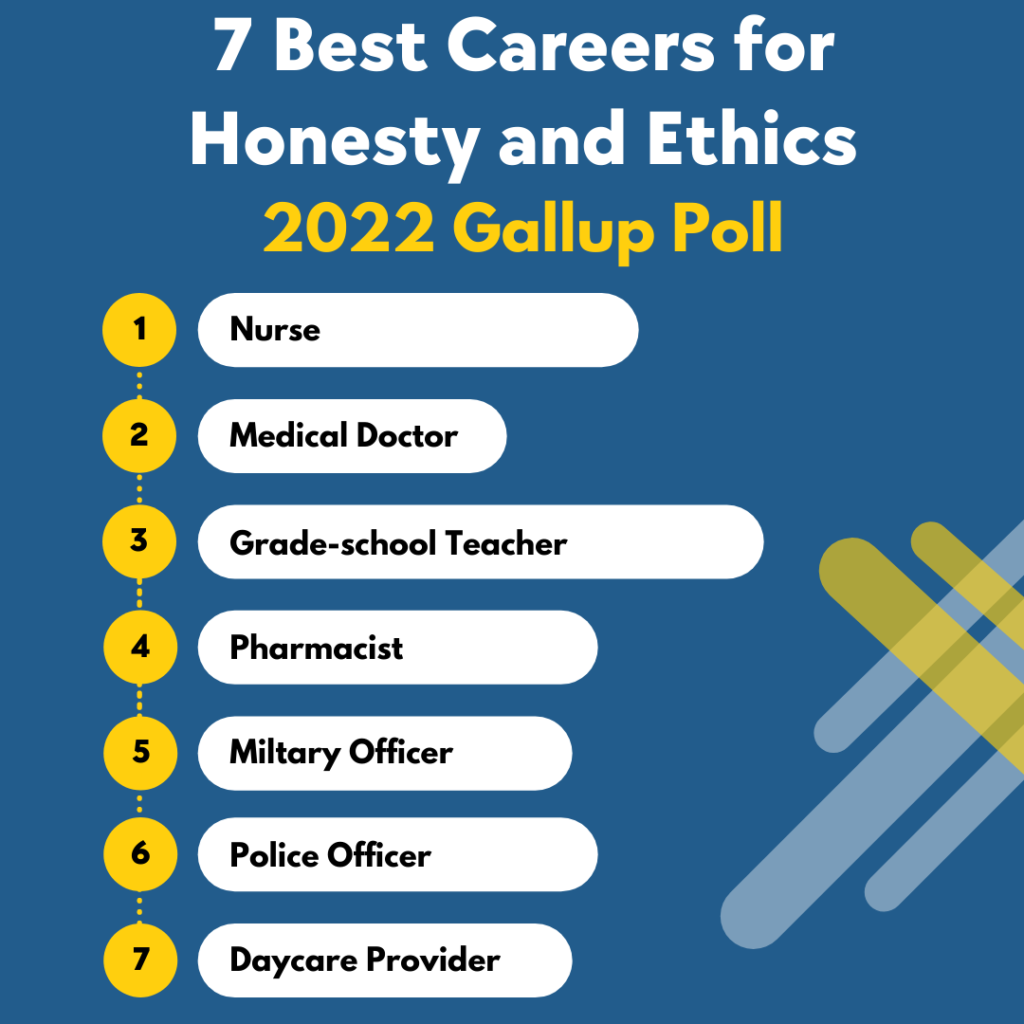
7 Highest Ranking Careers for Honesty and Ethics Based on Gallup’s Honesty and Ethics Poll
Mention any specific career, and we can all draw up certain images in our minds. These perceptions can arise from any number of possible sources – personal experiences, the nature of the job, media portrayals, and common stereotypes, to name a few.
While far from the only consideration when pursuing a career, people generally prefer others to view their profession in a positive light. Thus, it can be helpful to know which jobs fellow citizens tend to hold in high regard for integrity.
To find out where various careers place on this issue in the public’s eye, Gallup conducts an annual Honesty and Ethics Poll. It asks respondents to rate the honesty and ethical standards of workers in different fields. Results point to what people think, not actual evidence of conduct.
What is the Gallup Poll?
Gallup is an organization known for its public opinion polls. By surveying a representative sample of people, the polls produce results that reflect the thoughts of the larger population.
Gallup conducted its first Honesty and Ethics Poll in 1976 and has updated it annually since 1990.The most recent poll took place in December 2021. It asked Americans to rate the honesty and ethics of 22 different occupational groups as either “very high,” “high,” “average,” “low,” or “very low.”
7 Careers Respected for Honesty and Ethics
Gallup’s Honesty and Ethics Poll presented respondents with a variety of professions on which to give their opinion. When researchers compiled the results, however, only seven careers tallied a “very high” or “high” ranking from at least half the people surveyed.
Here, we take a look at the best-ranking careers for honesty and ethics and the educational paths needed to enter them:

7. Daycare Provider
6. Police Officer
5. Military Officer
4. Pharmacist
3. Grade-school Teacher
2. Medical Doctor
1. Nurse
Gallup Poll Rankings for Other Careers
Interested in how other professions fared? The following shows the percentage of respondents in the Gallup Poll who deemed a given job as “very high” or “high” when it came to honesty and ethics:
- Judges, 38%
- Clergy, 36%
- Auto mechanics, 35%
- Bankers, 27%
- Nursing home operators, 27%
- Local officeholders, 22%
- Lawyers, 19%
- Newspaper reporters, 17%
- Business executives, 15%
- TV reporters, 14%
- State officeholders, 12%
- Advertising practitioners, 11%
- Members of Congress, 9%
- Car salespeople, 8%
- Lobbyists, 5%
